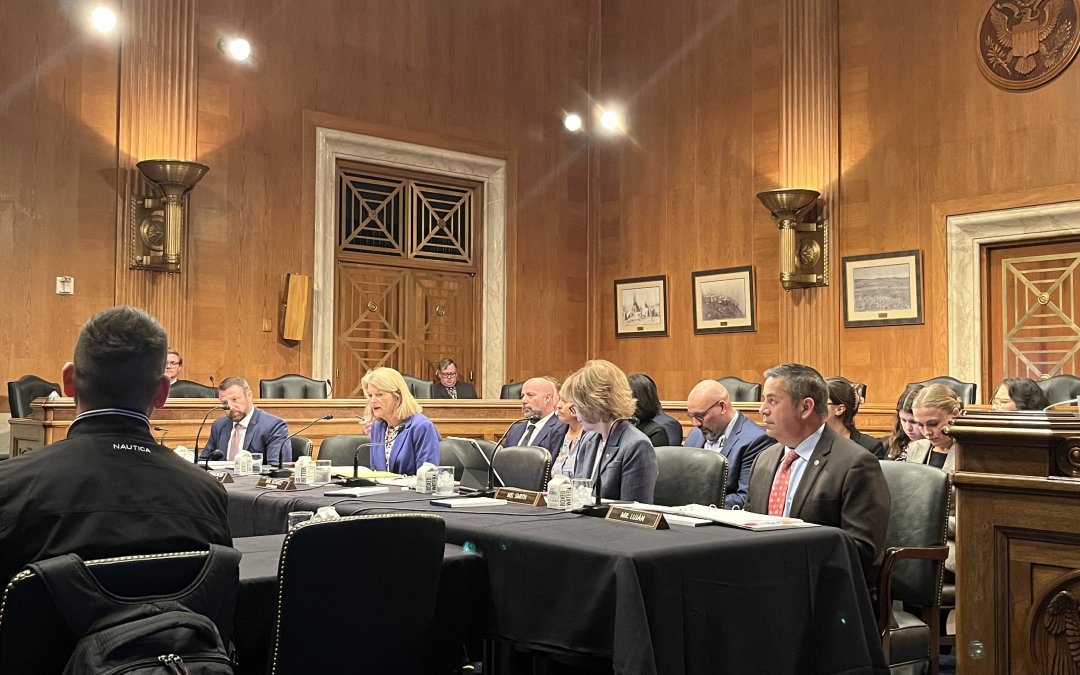WASHINGTON — Native leaders expressed frustration with the implementation of the Infrastructure Investment and Jobs Act (IIJA) and Inflation Reduction Act (IRA), citing a lack of communication and technical assistance from the federal government.
A roundtable held by the Senate Indian Affairs Committee on Wednesday discussed the rollout of the IIJA and IRA in Native communities.
Included in the bills are allocations for grants that tribes can apply for. However, tribal leaders expressed the different obstacles they face when applying to these grants, including but not limited to, a lack of broadband access, challenges with citing a physical address and inconsistent communication with government agencies.
“Right now, the biggest challenges are access to these grants, access to the tools to utilize these grants,” said Jasmine Boyle, chief development officer for the Rural Alaska Community Action Program.
Additionally, for tribes in rural Alaska, not having a physical address further complicates the grant application process, where a mailing address is required in order to complete.
Susan Masten, interim executive director of the Native American Finance Officers Association, called on Congress to authorize the Department of the Treasury and the Internal Revenue Service to provide the technical assistance and tax advice that tribal communities need.
“It’s wonderful to see Congress be like, this money is to empower tribes, and tribes being like, okay, but how do I get it?” said Heather Tanana, initiative lead at the Universal Access to Clean Water for Tribal Communities Project, in an interview with Medill News Service.
Timothy Nuvangyaoma, chairman of the Hopi Tribe in Arizona, noted a delayed response time when his tribe applied to waive a $10 million cost match for a project, which asked that the tribe put forth more than half of their general fund budget.
“Communication needs to get better, and they shouldn’t be leaving any tribe, a sovereign tribe, holding their breath and wondering what’s going on,” he said.
Shawn Malia Kana’iaupani, president and CEO of Partners in Development Foundation in Honolulu, emphasized the long history of stewardship in Native communities and existing strong relationships. She said it is important to fund Native organizations which mitigate significant crises but also safeguard their traditions and way of life.
“Even when a program is fully on the agency to implement and the tribe doesn’t have to apply for it, that consultation and engagement is really critical to make sure their needs are identified and included,” said Tanana.
During the discussion, Sen. Brian Schatz (D-Hawaii) emphasized that this is not a policy problem, highlighting that the IIJA and IRA are very clear in their legislative intent to empower Native communities. He said the problem stems from agencies not experienced in working with Native communities.
“It’s sort of, for [agencies], square peg, round hole so what they do is they try to get you to resemble the thing that they’re accustomed to,” said Schatz. “That is not what they’re supposed to do.”
Boyle said she was told by the Department of Treasury’s Office of Inspector General that tribes can face a permanent loss of access to further federal grant funding opportunities if they miss compliance deadlines that were extended. She and other Native leaders feel that, at large, agency expectations do not account for present capacity.
“Sometimes there’s one staff person and they are wearing many hats in some of the smaller tribes,” said Masten. “The requirements for reporting and the application process are all different and sometimes they’re everchanging. So, to stay on top of that, it almost makes it impossible for a tribe. So then you’re not helping out the very communities that you intended to help out.”


